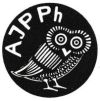

Paris Declaration on Philosophy
Paris Declaration on Philosophy
We, the participants in the International Study Days on Philosophy and Democracy in the World,
organized by UNESCO in Paris on 15 and 16 February 1995,
N o t e that the problems with which philosophy deals are the universal problems of human life and existence.
B e I i e v e that philosophical reflection can and should contribute to the understanding and conduct of human affairs.
C o n s i d e r that the practice of philosophy, which does not exclude any idea from free discussion and which endeavours to establish the exact definition of concepts used, to verify the validity of lines of reasoning and to scrutinize closely the arguments of others, enables each individual to learn how to think independently.
E m p h a s i z e that teaching philosophy encourages open-mindedness, civic responsibility, understanding and tolerance among individuals and groups;
R e a f f i r m that philosophy education in, by training independently-minded, thoughtful people, capable of resisting various forms of propaganda, prepares everyone to shoulder their responsibilities in regard to the great questions of the contemporary world, particularly in the field of ethics;
C o n s i d e r that the development of philosophical debate in education and in cultural life makes a major contribution to the training of citizens, by exercising their capacity for judgement, which is fundamental in any democracy.
Committing ourselves to do everything in our power in our institutions and in our respective coun tries to achieve these objectives, we therefore declare that:
– All individuals should be entitled to engage in the free pursuit of philosophy in all its forms and in all places where it may be practised. – Philosophy teaching should be maintained or expanded where it exists, introduced where it does not yet exist, and
– Philosophy teaching should be provided by qualified teachers, specially trained for that purpose, and should not be subordinated to any overriding economic, technical, religious, political or ideological requirements
– While remaining independent, philosophy teaching should wherever possible be effectively linked to academic or vocational training in all fields.
– The distribution of books which are accessible both in language and in sales price to a wide readership, the production of radio and television programmes, audio-and video-cassettes, the use for educational purposes of all forms of audio-visual and informatics technology, the creation of multiple opportunities for free discussion, and all types of initiative likely to provide the largest possible number of people with a grounding in philosophical issues and methods, should be encouraged with a view to providing philosophy education for adults.
– Knowledge of philosophical thought in different cultures, comparison of what each has to offer, analysis of what brings them dose together and what separates them, should be pursued and supported by research and teaching institutions.
– Philosophy, as the free pursuit of inquiry, cannot consider any truth to be final, and encourages respect for the convictions of the individual but should in no circumstances, at the risk of denying its own nature, accept doctrines which deny the liberty of others affront human dignity and sow the seeds of barbarity.
This declaration was accepted unanimously by 22 experts..
(Translation from French, L.D.)
Association Internationale des Professeurs de Philosophie
Contact
For membership-related inquiries, please contact:
dr Gabriele Münnix:
For inquiries about the journal Forum Philosophie International, please contact:
dr Gabriele Münnix:
For inquiries related to the annual AIPPh conference, please contact:
dr Gabriele Münnix:
For inquiries related to academic philosophy, please contact:
Prof. Dr. Hans Bringeland:
Prof. Dr. Alexander Chumakov:
Prof. Dr. Andrzej Kaniowski:
Prof. Dr. Aneta Karageorgieva:
For inquiries related to philosophy in secondary education, please contact:
Rolf Roew:
For inquiries related to the Special Interest Group (SIG) entitled ‘Community of Ethics Teachers in Europe’ (ethics.community), please contact:
dr Natascha Kienstra:
For further questions or requests for information, please contact:
Prof. Dr. Riccardo Sirello:
Imprint
Association Internationale des Professeurs de Philosophie (AIPPh)
Gemeinnützige Vereinigung zur Förderung philosophischer Bildung e.V.
Vereinsregister beim Amtsgericht Düsseldorf VR 11956
Steuernummer 105/5887/2339
Represented by
Dr. Gabriele Osthoff-Münnix, Ottweilerstr. 27, D 40476 Düsseldorf
Webmaster
StD i.R. Gerhard Wansleben, Marschnerstr. 1, 40593 Düsseldorf
→ Data protection
→ Democracy and Populism
© Gerhard Wansleben 2023